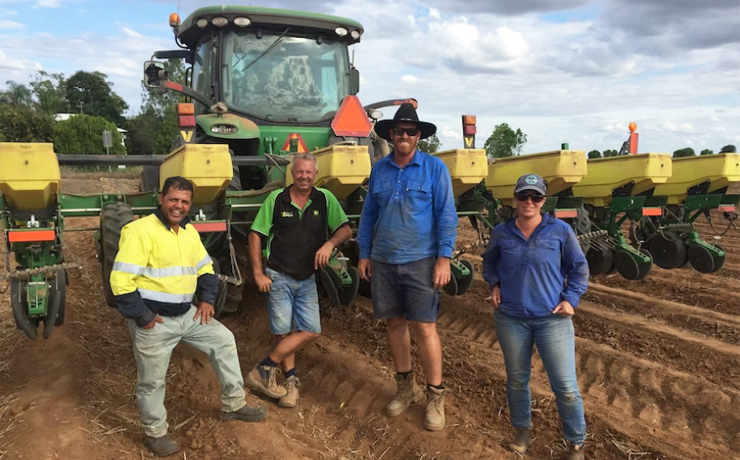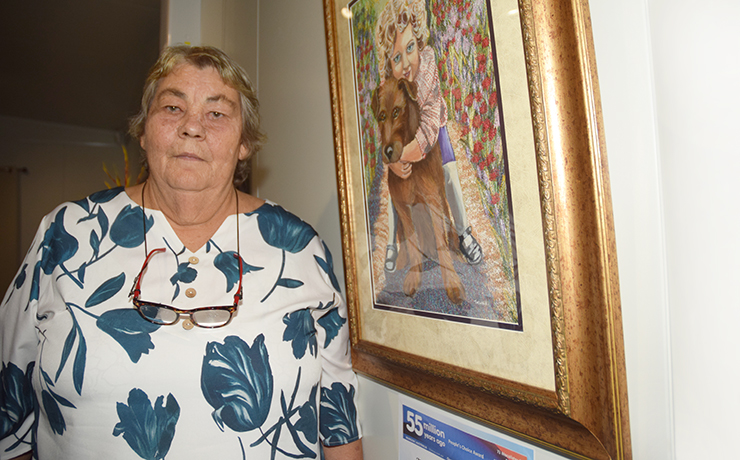
March 15, 2023
Grain and grazing trials incorporating peanuts are delivering promising results, according to university researchers.
Preliminary results from the Grain and Graze North project, led by CQUniversity in partnership with Bega’s Farming Services team, have shown peanuts can provide up to one tonne per hectare of biomass for cattle fodder without significantly compromising end-of-season nut yields.
The trials, at five sites in Queensland and at Katherine in the Northern Territory, have been supported by the CRC for Developing Northern Australia.
Lead researcher Dr Tieneke Trotter said that if successful, the concept would open the way for farmers and graziers to diversify their revenue streams by producing a crop for nut markets as well as harvesting biomass for livestock fodder both during and at the end of the growing season.
“So far we’ve found that while nut yield can be lower in plots that were cut for hay, the yield loss was not as large as producers might expect,” Dr Trotter said.
“In some cases, the nut yield was not impacted at all, or occasionally an improvement in yield was noted. The peanut plants recovered well after the in-season biomass cut, and they typically produced similar amounts of dry matter as the uncut plots at the end of the season of approximately 2t/ha.”
The peanut yields ranged between approximately 0.5t/ha and 4t/ha for varieties that were cut, and approximately 1t/ha and 6t/ha for plots that were not cut.
The results will inform future economic analysis of the cost and benefit of a fodder-plus-nut crop versus nut-only production.
“More research is needed into how to minimize the yield discrepancies, and why the performance of varieties varied so greatly between trial sites, which we believe was due to cold temperatures throughout the growing season in North Queensland resulting in a lower-than-expected biomass and nut yield at those sites,” Dr Trotter said.
“The two major lines being grown across northern Australia in the 2023 season are Alloway and Kairi, but there will also be further investigation of two minor lines which may be more suited to some conditions, with another variety to be trialled in Katherine and one in the Burdekin.”
Bega Peanuts Breeding and Seed Manager Dan O’Connor said he was encouraged by the first year of trial work and expected improvements in crop yield over year two and three of the project.
“With planting commencing on time this season and good growing conditions throughout the season, we would expect yields to improve significantly in 2023.
“Peanut is a high value fodder product and the potential for multiple crop uses in one crop cycle is a very exciting development that may encourage new growers to look at peanut as a cropping option,” Mr O’Connor said.
Related articles:























